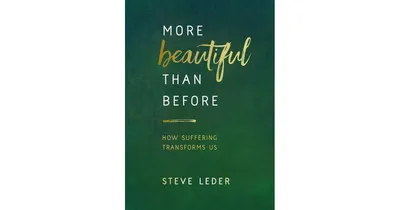Home
A More Beautiful and Terrible History: The Uses Misuses of Civil Rights History
Loading Inventory...
Barnes and Noble
A More Beautiful and Terrible History: The Uses Misuses of Civil Rights History
Current price: $20.00


Barnes and Noble
A More Beautiful and Terrible History: The Uses Misuses of Civil Rights History
Current price: $20.00
Loading Inventory...
Size: Audiobook
*Product Information may vary - to confirm product availability, pricing, and additional information please contact Barnes and Noble
This “bracing corrective to national mythology” around the American civil rights movement “shows us how little we remember, and how much more there is to understand
”
(
New York Times
).
“Theoharis’s view of history is expansive” as it reveals the diverse, unsung heroes of the movement and criticizes the oversimplification of complex figures like Martin Luther King, Jr. (
O Magazine
The civil rights movement has become national legend, lauded by presidents from Reagan to Obama to Trump, as proof of the power of American democracy. This fable, featuring dreamy heroes and accidental heroines like Martin Luther King and Rosa Parks, anchors the movement firmly to the past, whitewashes the forces that stood in its way, and diminishes its scope.
Award-winning historian Jeanne Theoharis dissects this national myth-making, teasing apart the accepted stories to show them in a strikingly different light. She makes us reckon with the fact that far from being acceptable, passive or unified, the civil rights movement was unpopular, disruptive, and courageously persevering. Activists embraced an expansive vision of justice, which a majority of Americans opposed and which the federal government feared.
Her challenge of this fable reveals the immense barriers and repression activists faced. She explores the diversity of people who led the movement, especially women and young people; the work and disruption it took, including the public demonization of ‘rebels;’ and the role of the media and “polite racism” in maintaining injustice.
A More Beautiful and Terrible History
will change our historical frame, revealing the richness of our civil rights legacy, the uncomfortable mirror it holds to the nation, and the crucial work that remains to be done.
”
(
New York Times
).
“Theoharis’s view of history is expansive” as it reveals the diverse, unsung heroes of the movement and criticizes the oversimplification of complex figures like Martin Luther King, Jr. (
O Magazine
The civil rights movement has become national legend, lauded by presidents from Reagan to Obama to Trump, as proof of the power of American democracy. This fable, featuring dreamy heroes and accidental heroines like Martin Luther King and Rosa Parks, anchors the movement firmly to the past, whitewashes the forces that stood in its way, and diminishes its scope.
Award-winning historian Jeanne Theoharis dissects this national myth-making, teasing apart the accepted stories to show them in a strikingly different light. She makes us reckon with the fact that far from being acceptable, passive or unified, the civil rights movement was unpopular, disruptive, and courageously persevering. Activists embraced an expansive vision of justice, which a majority of Americans opposed and which the federal government feared.
Her challenge of this fable reveals the immense barriers and repression activists faced. She explores the diversity of people who led the movement, especially women and young people; the work and disruption it took, including the public demonization of ‘rebels;’ and the role of the media and “polite racism” in maintaining injustice.
A More Beautiful and Terrible History
will change our historical frame, revealing the richness of our civil rights legacy, the uncomfortable mirror it holds to the nation, and the crucial work that remains to be done.


















